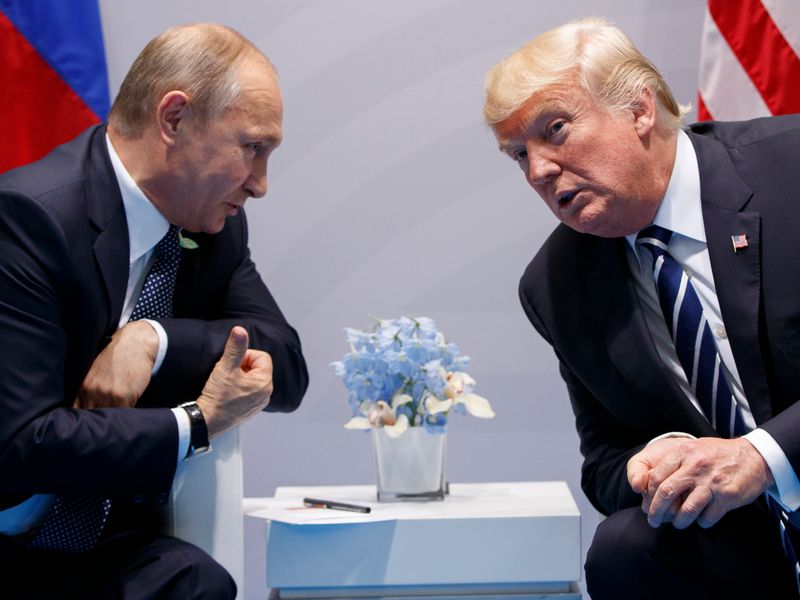Former U.S. President Donald Trump described his phone conversation with Russian President Vladimir Putin as “lengthy and highly productive,” stating that both leaders agreed to initiate negotiations aimed at ending the war in Ukraine.
In a message on his Truth Social platform, Trump said they had decided to have their respective teams begin discussions immediately.
Following this, Ukrainian President Volodymyr Zelensky announced that he had also spoken with Trump regarding establishing a “lasting, reliable peace.”
These discussions coincided with statements from Trump and his defense secretary indicating that Ukraine was unlikely to become a NATO member—news that would be disappointing for Kyiv.
Zelensky later confirmed plans to meet U.S. Vice President JD Vance and Secretary of State Marco Rubio during an upcoming Ukraine defense summit in Munich.
Trump reiterated on social media that it was time to end what he called a “ridiculous war” with “massive and totally unnecessary death and destruction,” extending blessings to the people of both Russia and Ukraine.
While he did not set a date for a face-to-face meeting with Putin, Trump later told reporters at the White House that they would meet in Saudi Arabia. He also mentioned that both he and Putin had extended invitations to visit each other’s capitals.
Kremlin spokesperson Dmitry Peskov confirmed that Putin backed Trump’s proposal to move forward with negotiations. He revealed that the phone call lasted about 90 minutes, during which Putin invited Trump to Moscow.
Trump also commented that it was unlikely Ukraine would regain all of its pre-2014 borders, though he suggested that “some of that land will come back.” His stance aligned with that of his Defense Secretary Pete Hegseth, who had earlier stated at a NATO summit that Ukraine’s membership in the alliance was improbable.
Later, several European nations, including the UK, France, and Germany, issued a statement insisting that they must be involved in any future negotiations on Ukraine’s fate. They emphasized the need for strong security guarantees for Ukraine and reaffirmed their intent to collaborate with the U.S. on the matter.
The shift in U.S. policy under Trump—marked by a more cautious approach to Ukraine—has seemingly been met with approval in Moscow.
Zelensky has consistently maintained that any negotiations on Ukraine must include Ukraine itself. However, Trump’s direct engagement with Putin has raised concerns about the extent to which Kyiv will be involved in shaping its own future.
The war, which began nearly three years ago with Russia’s full-scale invasion, has led to significant territorial losses for Ukraine. While Kyiv successfully defended its capital, Russian forces still control a substantial portion of the country’s eastern and southern regions. Airstrikes and counterattacks continue on both sides, with Ukraine targeting Russia’s Kursk region.
Estimating casualties remains challenging due to government-imposed secrecy, but it is believed that hundreds of thousands—primarily soldiers—have been killed or wounded. Millions of Ukrainian civilians have also been displaced, fleeing the country as refugees.

For comments, Feedback and Opinions do get in touch with our editor on WhatsApp: +44 7949 297606.
